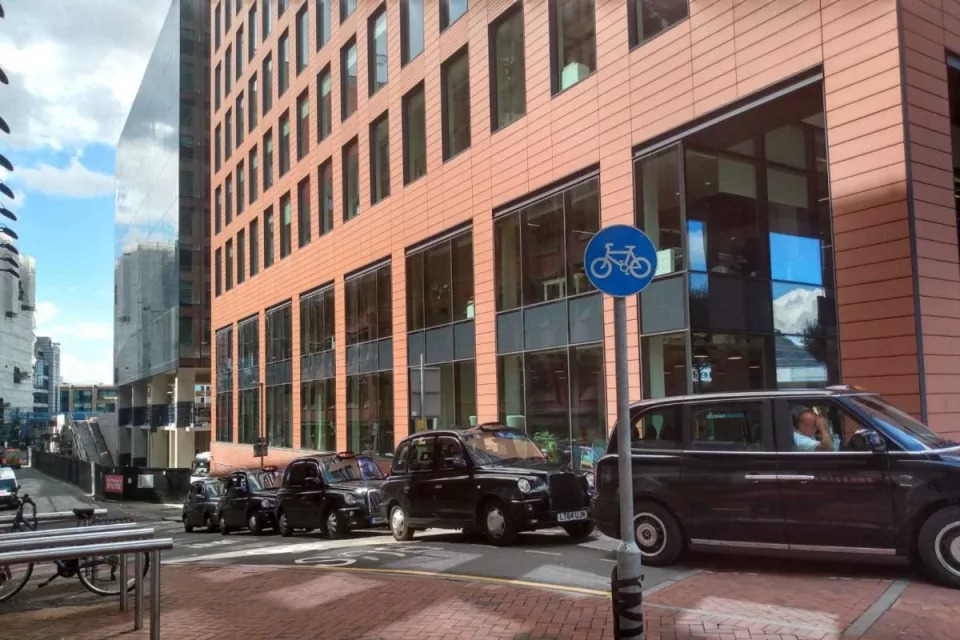Post by The Dark Knight on Nov 10, 2023 9:01:36 GMT
Reading taxi drivers share concerns about expensive new cabs

Black cab drivers queuing at a taxi rank in Garrard Street, Reading town centre. Credit: James Aldridge, Local Democracy Reporting Service
The way taxis will operate in Reading for the next five years has been agreed, but drivers have raised the alarm over the expense of low-emission cabs.
Over the summer, Reading Borough Council undertook a consultation into its taxi strategy 2023-2028, which lays out its intentions for the cab and private taxi trades.
Proposals included requiring all cabs and private hire vehicles to be electric or hybrid by 2028 and prioritising access to taxi ranks to low-emission and electric-only vehicles in the future.
The strategy was discussed at a council licensing applications committee meeting.
A representative of hackney carriage a.k.a black cab drivers argued that ultra-low emission vehicles (ULEV) are too expensive for some drivers.
Asif Rashid, chairman of the Reading Taxi Association, said: “At the moment we only have one ULEV that can be used Reading, it is not fully electric, and they are very expensive.
“One of the biggest barriers to owners switching to ULEV/electric taxis is the costs involved.
“Currently the ULEV taxi costs £74,000 and a Government grant of £7,500 is available, taking the cost down to £66,500.00.
“However, this Government grant is due to end on April 1, 2024, which will make the ULEV even more expensive.
“Having ULEV and electric-only taxi ranks would be discrimination. We are not in favour of this whatsoever.”
Fellow driver Imran Ali, speaking earlier in the meeting, also opposed the possible restriction of access to taxi ranks.
Mr Ali said: “On Friday and Saturday night, if we’re not allowed at the taxi rank, and there are 50 people queuing up for us there will be chaos.”
uk.news.yahoo.com/reading-taxi-drivers-share-concerns-151000152.html

Black cab drivers queuing at a taxi rank in Garrard Street, Reading town centre. Credit: James Aldridge, Local Democracy Reporting Service
The way taxis will operate in Reading for the next five years has been agreed, but drivers have raised the alarm over the expense of low-emission cabs.
Over the summer, Reading Borough Council undertook a consultation into its taxi strategy 2023-2028, which lays out its intentions for the cab and private taxi trades.
Proposals included requiring all cabs and private hire vehicles to be electric or hybrid by 2028 and prioritising access to taxi ranks to low-emission and electric-only vehicles in the future.
The strategy was discussed at a council licensing applications committee meeting.
A representative of hackney carriage a.k.a black cab drivers argued that ultra-low emission vehicles (ULEV) are too expensive for some drivers.
Asif Rashid, chairman of the Reading Taxi Association, said: “At the moment we only have one ULEV that can be used Reading, it is not fully electric, and they are very expensive.
“One of the biggest barriers to owners switching to ULEV/electric taxis is the costs involved.
“Currently the ULEV taxi costs £74,000 and a Government grant of £7,500 is available, taking the cost down to £66,500.00.
“However, this Government grant is due to end on April 1, 2024, which will make the ULEV even more expensive.
“Having ULEV and electric-only taxi ranks would be discrimination. We are not in favour of this whatsoever.”
Fellow driver Imran Ali, speaking earlier in the meeting, also opposed the possible restriction of access to taxi ranks.
Mr Ali said: “On Friday and Saturday night, if we’re not allowed at the taxi rank, and there are 50 people queuing up for us there will be chaos.”
uk.news.yahoo.com/reading-taxi-drivers-share-concerns-151000152.html

